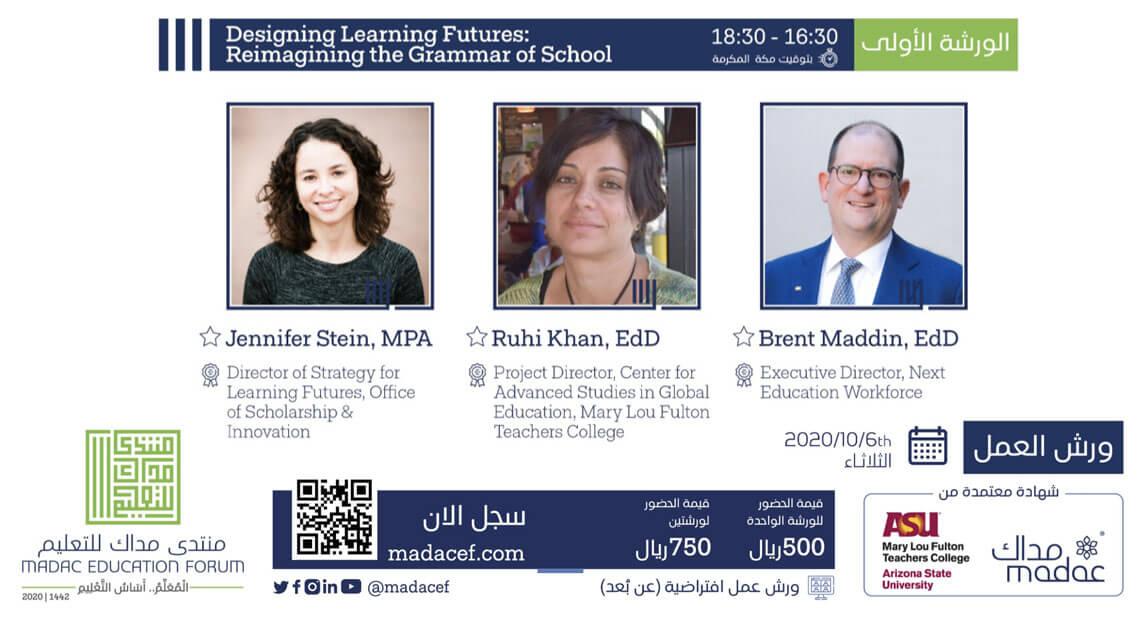
With the sudden increase in recent months in time spent on video meetings, I’m sure many of us have experienced the slightly strange feeling of presenting or speaking to an audience that you can’t see at all. I realize that people in certain fields do this all the time — radio hosts, people on TV — but for those of us more accustomed to in-person conferences or classes, it can be an adjustment to have no way of visually gauging your audience.
I recently had the privilege of collaborating with two MLFC colleagues to present a workshop for a virtual conference for educators and education leaders in Saudi Arabia, organized by MADAC Academy. One of the unique aspects of this was the need to adjust content that we have presented elsewhere to a culturally and linguistically different setting from our own. Not being able to see the audience only compounded the challenge, yet being flexible and open to however the session would unfold was an interesting and valuable part of the experience of being a presenter.
For the two hour workshop, we wanted to have interactive components, including some breakout room discussion, not simply our group of three presenters talking at the audience. However, this was made more challenging by the language barrier (some but not all participants understood and spoke English) and differences in cultural norms of participating in a group discussion via Zoom. We found that even though the total group was small (fewer than 15 participants), attendees kept their videos off and many were not inclined to unmute themselves to participate in the discussion. We were provided an interpreter who translated our presentation in real time, but we didn’t have translation for attendees to speak to us. That said, enough people were able to participate, via chat or by speaking up, that we were able to have a good conversation.
I really enjoyed the planning process for the workshop, as I worked with two colleagues with whom I have limited opportunity to work closely: Ruhi Khan from the Center for Advanced Studies in Education, and Brent Maddin, who leads the college’s Next Education Workforce initiative. Ruhi previously led a program that brings Saudi educators to ASU for extended periods of time and has helped support some course planning and delivery for the Saudi MADAC Professional Certificate Program, so her knowledge of Saudi Arabia and experience working with Saudi educators was invaluable to developing the workshop. It was fun to discuss and map out the content and flow of the workshop with Ruhi and Brent over several truly collaborative planning meetings. I appreciated the opportunity to think carefully about how to translate the ideas of Learning Futures to a different culture and context, and make the core ideas accessible in a relatively short presentation.